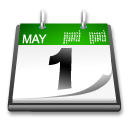Great List of Playing Tips
Andrew Hitz
I recently stumbled onto a great list of playing tips over at the website for the International Horn Society by Eldon Matlick, professor of horn at the University of Oklahoma.
It is titled "Hot Tips for Horn Players" but is really a list for all musicians. It features 18 tips for musicians of all kinds. Really, really good stuff!
You really need to read the whole list but here are a few of my favorites:
1. PERFORMANCE IS 90% MENTAL! Learn how to think! If you can hear it, you can play it. Expose yourself to great music and music making. Listen to great horn players. Experience live professional music making. Listen to recordings of world- class ensembles. Experience various mediums and styles of music. Become a musical sponge and take everything in. Every musical experience goes into your memory bank and this is the source from which you draw.
6. LEARN TO HEAR DETAILS IN YOUR PLAYING! Don’t succumb to the trap of falling in love with your playing. Develop a critical ear. When you think something is polished, record yourself. You will be amazed at what you hear. Keep stock of what you can do well and what you need to accomplish. Don’t waste time doing things that are not a problem. Great players work out and solve their playing deficiencies. Eliminate weaknesses in your playing. While this may prove to be mentally painful, this is a sure-fire method of gaining success in your performance.
12. PRACTICE ‘OUTSIDE THE BOX’ Musicianship is not the same as horn playing. Create a musical experience when you play. To this end, we must free ourselves from the instrument. Learn to sing! Singing is the ideal medium for establishing musical flow and the identification of logical breathing spots. Identify the natural flow of the solo line. Is the phrase asking a question or making a statement? As you sing, are you aware of the various emotional content of the various passages/sections? Practice singing and phrasing different ways. Identify those phrasings that have promise and then experiment on your instrument. When learning a solo, don’t neglect learning, and being able to sing, all interludes between solo entrances.
Seriously, go read them all!
